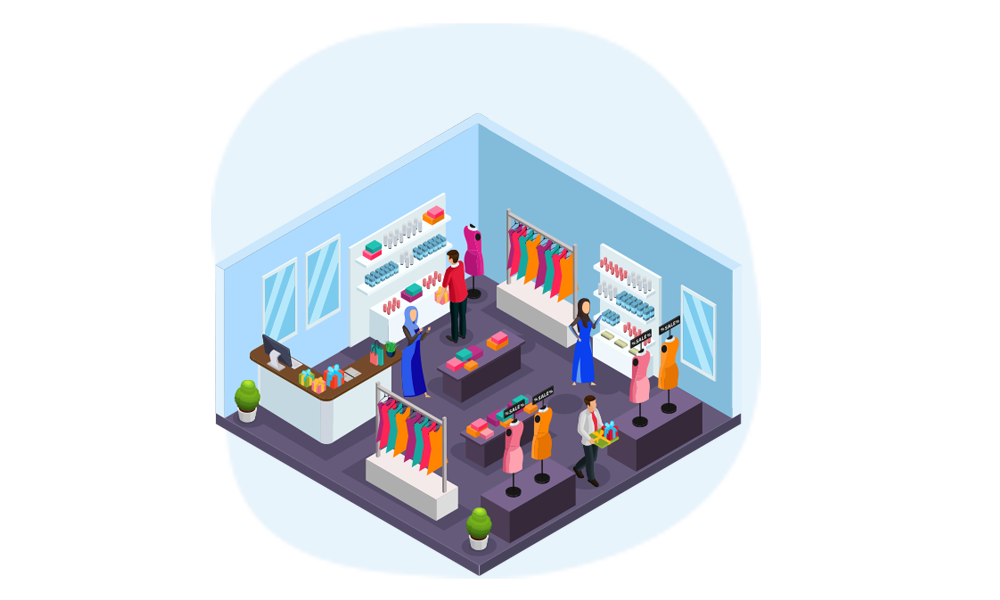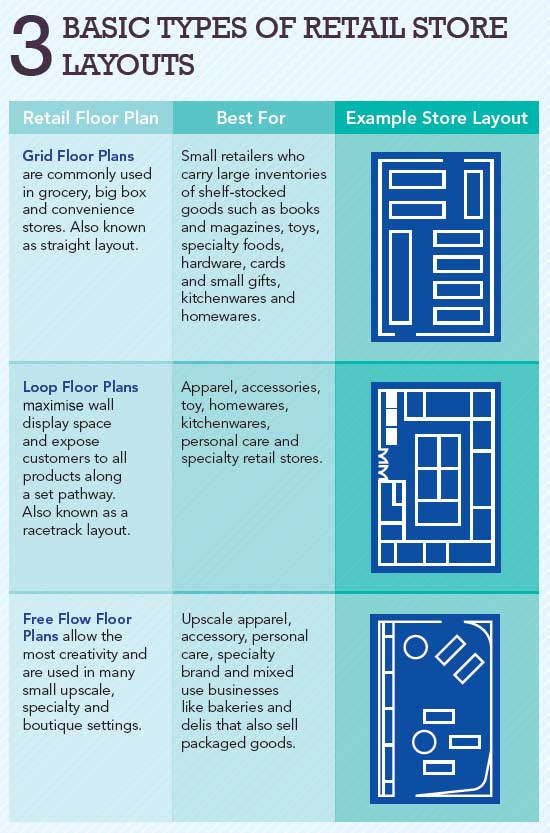Operating a Service or a Store Retail
- Home
- Operating Your Business
- Operating a Service or a Store Retail
Operating a Service or a Retails Store Firm
Optimizing Your Retail Store
Most retailing involves buying merchandise or a service from a manufacturer, wholesaler, agent, importer or other retailer and selling it to consumers for their personal use.
Features to consider:

1. Shop Floor Management
The two key elements are store design and store layout.
- Store design is concerned with atmosphere, image, interior design and exterior design factors that offer a positive ambience to the customers.
- Store layout involves the internal arrangements of merchandise.


2. Stock Management
Develop a network of suppliers (one main supplier or multi-supplier operation) taking into account “on-time delivery”.
Consider long-term supply agreements with manufacturers of desirable merchandise. Scheduling delivery of stock based on lead-time and cash flow.
A computerized system to receive and check stock (retail management software to keep track of your purchase, goods received, goods sold, inventory as well as report on stock).
Store your stock systematically e.g. storeroom with shelves and compartment, faster moving at quickest to reach, etc.
Have adequate inventory based on trends and seasonal considerations.

3. Procurement Terms
Payment by cash or credit. If credit, what is the credit terms, 30 or 60 days? Terms of delivery of stocks.

4. Payment
Automated point of sale (product code, customer receipt, cash & non-cash payment).

5. Customer
Visible store policy which includes terms on payment returned goods and others.
Offer incentives that encourage shoppers to share contact information and alert them to sales likely to draw them back.
Maintain a culture based on friendly and knowledgeable customer service.
Maximise operating hours to accommodate consumers and offset fixed expenses, such as rent and utilities.

6. Employees
Give more attention to staffing which means by having a detailed information in the employment contracts for key employees as well as investing in training.
Consumers often form their impressions of a store by evaluating its sales force.
Create a work schedule that maximises productivity while holding down labor costs.
More employees at peak hours. Have a record of qualified applicants who can be called in as needed. down labor costs. More employees at peak hours. Have a record of qualified applicants who can be called in as needed.
Train employees on product knowledge, problem-solving skills, languages & customer management.

7. Safety And Security
Have safely measures for customers to feel safe being inside the store as well as to prevent shoplifting.
The above is correct on 14th October 2021.
